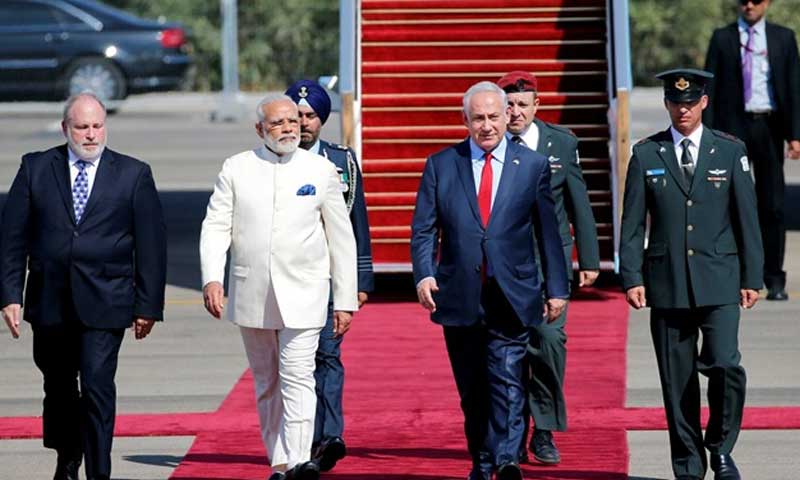- Web Desk
- Feb 26, 2026
Pak-Afghan trade complexities in the Taliban era
Trade between Pakistan and Afghanistan has consistently been undermined by security issues, particularly border conflicts, despite its evident potential. Following their ascent to power, the Taliban’s protectionist policies have resulted in a trade surplus against Pakistan, further straining Pakistan’s already fragile economy.
In September, a clash between the Taliban’s and Pakistan’s security forces in Khyber effectively halted all economic activities associated with the Torkham border.
However, this isn’t an isolated incident. Since the Taliban’s takeover of Kabul, trade has been marred by frequent border closures. For instance, in December and early January 2022, Taliban forces intervened on Pakistan’s side, disrupting an ongoing border fencing project due to their rejection of the Durand line. In February 2022, the primary border between the two countries was shut by the Taliban, with residents reporting “sounds of gunfire”. Siddiqullah Quraishi, the head of Nangarhar province, attributed this closure to the failure to provide “transit facilities” for the ill and passengers.
Since the Taliban’s takeover in August 2021, trade and transportation have faced interruptions on eleven occasions.
This sharply contrasts with the assurances of the Taliban’s spokesperson, Zabihullah Mujahid, who, after their rise to power, declared that Afghanistan would maintain trade engagements with regional countries.
During these disruptions, thousands of trucks, laden with both perishable and non-perishable goods, were left stranded at the border. This resulted in the spoilage of fruits and vegetables worth millions, exacerbating the challenges faced by merchants and transporters.
The continuous border closures, coupled with Kabul’s protectionist policies, have disrupted Pakistan’s trade balance. According to the Special Inspector General for Afghanistan Reconstruction (SIGAR) report, in 2022, the Taliban achieved a trade surplus of 14 per cent. Furthermore, Afghanistan boasted a surplus of $79 billion in the fiscal year from July 2021 to June 2022, while Pakistan’s exports to Afghanistan plummeted by 73 per cent after the Taliban’s takeover. Conversely, Afghanistan’s exports to Pakistan surged by 142 per cent.
The report also underscored a significant decline in Afghanistan’s imports, leading to a trade surplus of $112.5 million. A report from Dawn highlighted a significant decline in Pakistan’s exports since the Taliban’s takeover, with cargo flow dropping by 16 per cent in 2021 and further declines in the fiscal year 2022.
Despite commitments from various governments and in alignment with our ‘strategic depth’ policy, mutual trade has seen a consistent decline since 2016. The report indicates a drop to $800 million from $1.3 billion between 2015-16. The number of cargo containers in 2021 also dwindled from 15,864 to a mere 4,212.
Afghanistan’s exports, however, rose to $779.39 million for the fiscal year of July-March 2021, as per the Pakistan Economic Survey. This occurred during a complete ban on wheat and sugar exports. The SIGAR report highlighted that the Afghani’s value not only remained stable but appreciated by 16.3 per cent against the Pakistani rupee.
The trade surplus can be largely attributed to the surge in coal exports. The Taliban aims to capitalise on Afghanistan’s coal mining sector. Since their takeover, coal exports to Pakistan have increased by 1.8 million tons, marking an 18 per cent growth. Pakistan’s reliance on Afghan coal for electricity has generated unprecedented revenue for the Afghan administration.
In June and July 2022, the Taliban significantly increased coal prices. On June 28, the price escalated to $200 per ton from $90 per ton. By July, prices reached $280 per ton, a 30 per cent increase from the initial rates. According to World Bank data, coal exports totalled $173.5 million in 2023.
Post their takeover, a significant portion (58 per cent) of the Taliban’s revenue has been derived from indirect customs taxes at border crossings. The SIGAR report from July 2023 revealed a 35 per cent increase in border tax collections compared to the same period in 2022.
Illegal mining also serves as a significant revenue source for the Taliban. Even before their takeover, they controlled approximately 750 mining sites. Now in power, they levy substantial export taxes.
Despite lacking a robust governance model or strong economic institutions, Afghanistan’s economy thrives. However, recurring border skirmishes between the Taliban and Pakistani security forces, combined with the consistent misuse of Afghan transit trade to smuggle items worth billions into Pakistan, evading its tax net, have hampered Pakistan’s economy.
Pakistan is implementing measures to regulate Afghan transit trade and make it more systematic, banning items most likely to be used within Pakistan. There’s also increasing pressure to repatriate Afghan citizens residing illegally in the country. Whether these measures are temporary solutions or will have a lasting impact on the economic and political relations between Pakistan and Afghanistan remains to be seen.






